Cmandra
Contributing writer for The Artifice.
Contributor III
- Plebian Penman
- Common Writer
- Lurker
- Pssst
- Hand Raiser
- Sharp-Eyed Citizen
- Town Watch
- Detective Deskman
- Penman Patrol
- Article of the Month
- ?
- Articles
8 - Featured
8 - Comments
101
- Ext. Comments
35 - Processed
101 - Revisions
88
- Topics
16 - Topics Taken
13 - Notes
42
- Topics Proc.
53 - Topics Rev.
26
- Points
3281 - Rank
28 - Score
2271
Latest Articles
Latest Topics
Published | The Art of TrollingInternet trolling has become an even hotter topic in the wake of the 2016 election and the rise of the "other" Alt-Right. Explore the roots and history of trolling. Is it the legacy of Socratic rhetorical styles meant to expose societal hypocrisy or just plain bullying.
|
Does 'The Get Down' Get Down?Baz Luhrmann's Netflix series The Get Down chronicles the origins of Hip-Hop in the Bronx in the 1970s. Does it do this history justice?
|
Pokemon and the Animals in Captivity DebateExplore the various discourses with in the Pokemon series (and there is enough information in the Indigo League seasons for this) on issues regarding animals in captivity. If Pokemon creatures are seen as pets, trained animals in captivity, or beasts of burden, what are some examples of the ways that the series treated different philosophies and consequences of humans keeping control of highly "evolved" creatures?
|
Meta DeadpoolAnalyze the way in which the new film Deadpool uses meta-cinema techniques for the advancement of character, plot, and theme. How do the self-aware references to popular culture enhance the audience's experience?
|
Live Musicals! Who Does it Better?In 2013, NBC got America's attention by producing The Sound of Music Live! Ratings went through the roof! Next was Peter Pan, and then The Wiz. Now Fox has done Grease Live with an audience and different locations. Who did it better? NBC or Fox? Explore the history of live televised musical theatre performances. Explore techniques, successes, and failures to determine who wears the live musical crown. |
The Simpsons' Influence on American PoliticsThe Simpsons has never restrained from making political statements, but what happens when life imitates art? Research and analyze the presence of political commentary in The Simpsons which have made their way back into political commentary. |
Gone With the Wind. Classic Movie to be Embraced or Dated and Offensive?The same can be asked about many films of this era, particularly with regard to their portrayal of African Americans. However, this film won Hattie McDaniel an Oscar for her portrayal of Mammy. Did she accomplish something extraordinary as the first African American woman to win an Academy Award or was she being rewarded to cementing stereotypes? An article on the topic would take these and other questions into consideration when finding a place for this film in today's world.
|
Steven Moffat the sexist: The Whovian DilemmaSteven Moffat, the writer for Doctor Who since 2010, has said horrible things about the female fan base of this show, and Sherlock, which he co-created, as well as detestable things about women in general. Highlights might include calling women "needy," calling actress Karen Gillan (Amy Pond) "wee and dumpy" and claiming that women only enjoy Sherlock because they are attracted to Benedict Cumberbatch. This is enough to enrage anyone, but does it affect the quality of his Doctor Who episodes when he dismisses the majority of his own fan base as boy-crazy, "needy" idiots. There has always been a sort of dismissal for anything in pop culture which attracts female viewership, (especially young female viewership), implying that girls don't know the difference between good and bad entertainment. As feminist scholar Stacy Wolf says, "Historicizing the devaluation of girls' tastes shows how categories of cultural worth are highly gendered." (Changed for Good, 222) Does this apply to Doctor Who since Moffat took over? This study would compare the quality of female characters on Doctor Who before and after Moffat and their overall impact on the quality of events.
|
Latest Comments
| How A Feminist Watches Game of Thrones: Power Is Power | |
I am so glad to see this get published! Well done Diana! | The anime gold rush in the early 21st century |
Thank you! I’m glad you enjoyed it! | Hamilton and the Construction of Post-Obama Americanism |
Agreed! It is incredibly relevant right now! | Why is Disney Overemphasizing Frozen? |
Thanks for the comment. I touch briefly on the appeal of B&B to adults with the Oscar nom and the new found sophistication of animated films. I do think it is interesting that you jump from B&B to Frozen when so many other Disney princesses/women have faced very adult situations, most notably Pocahontas, Esmerelda, and Mulan. | Why is Disney Overemphasizing Frozen? |
Thanks Betts! Can’t wait to read yours on Lucy! | Hamilton and the Construction of Post-Obama Americanism |
This often happens with successful shows, and has been the case since the 1980s. Hamilton is not unique in this. Keep in mind that Book of Mormon seats were about the same price. | Hamilton and the Construction of Post-Obama Americanism |
Thank you so much! I’m so glad you liked it! It was a year in the making, so it’s nice to have it mean a lot to people. | Hamilton and the Construction of Post-Obama Americanism |

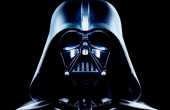


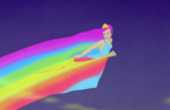
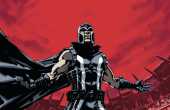
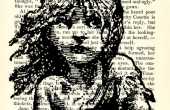
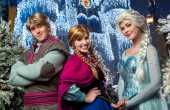
Hello Jessica,
Thank you for the time it took to respond with these thoughtful comments. In the interest of normalizing the process of going back in one’s past writing and self-critiquing, I look for ways to make my writing clearer. I had hoped to demonstrate the difference between the way that a pop culture text is written and the way it is received. There are going to be readings, counter-readings, and everything in between for a show like Game of Thrones or any show. In the article, I recognize, early on, that the show’s feminism is subversive at best, and also hotly contested – or, at least it was more hotly contested five years ago, when I wrote this. Like I said: “This article is meant to give the reader one specific tool, the Alienation Effect, for doing a feminist reading of Game of Thrones.” In other words, if a feminist is actively looking for moments of agency and resistance of female characters in GoT, here is a tool (one might say lens) that might help them find it. There is a reason I specifically chose to use Dolan’s framework – since her work acknowledges that most pop culture texts are not made for women, let alone feminists. Most are made for the “male gaze” and, yes, are sexist. She offers a way of looking at a piece and reclaiming it as feminist. It is an active choice that often goes against the initial intent of the piece – just as there are many things in this world that are not made for women, but women still find ways of claiming and reclaiming them – or not. I tried to make this as clear as possible, and it’s apparent that I could have done better. I have learned a lot in the last five years about how to write and how to better engage, and I recognize that my tone reads as dismissive without sufficiently acknowledging Serendipity’s point that the subversive aspects of the show’s feminism might be too subterranean to be noticed and cold potentially cause harm. I do maintain that my intent is not to justify the things portrayed on the show, but to highlight the ways that female characters exhibit agency and resistance under circumstances and rules that were not built for them.
I think that if I were to re-write this piece or revisit this piece (which I cannot do on this platform) I would not give the writers as much credit as I did in planting these meanings. I would also revise certain sections to include content warnings. I would also edit my second-to-last paragraph, where I tell feminists who disagree with me to keep speaking up but focus energy on the real world instead of the show: I would change that to keep speaking up, focusing your energy on the show AND the real world. There are probably some other things I would change, but I would need more time to go through it in more detail. Also the title was changed at the last minute by editors to better match whatever the Google algorithm was, at the time. I didn’t originally phrase it that way (I don’t remember what it originally was) but if I had a choice to change it, it would probably read more like “Tools for Feminist Reclamation” or something that makes space for other feminist readings. I agree that this title makes it sound like I think I have a monopoly on feminist readings, and that’s not reflexive of what I say in the article where I acknowledge debates and other viewpoints, which I believe are valid. Thank you again for your feedback.